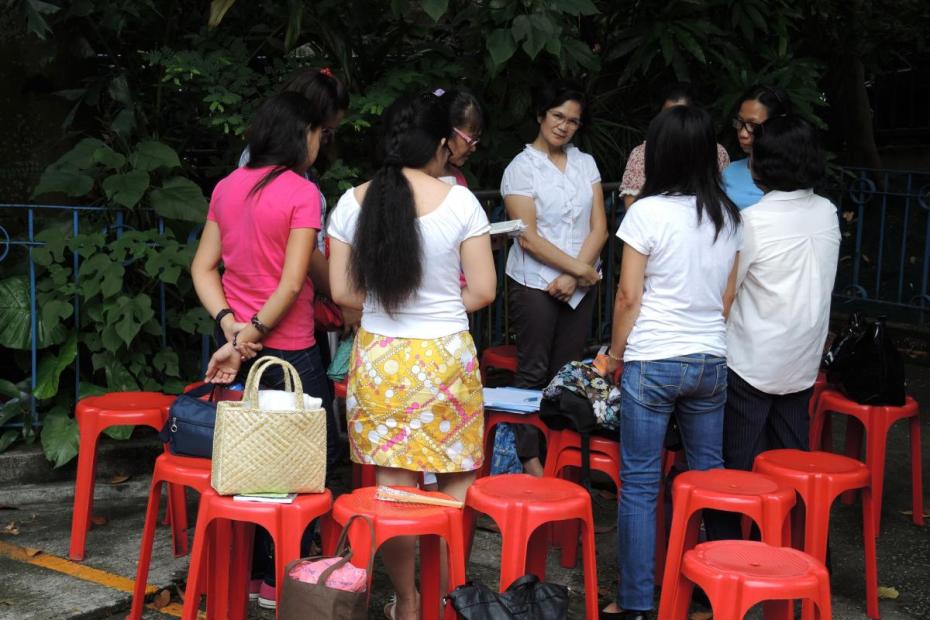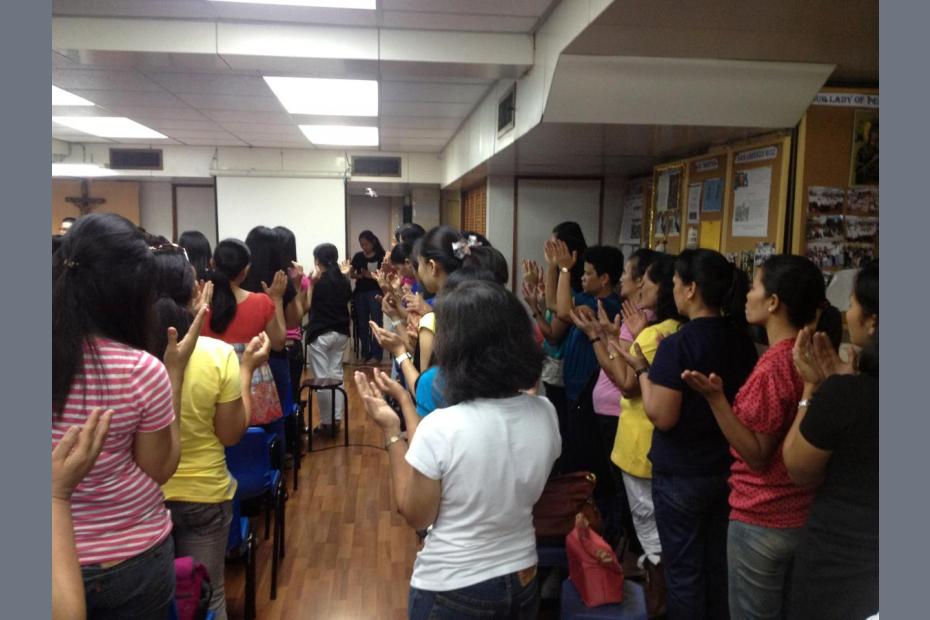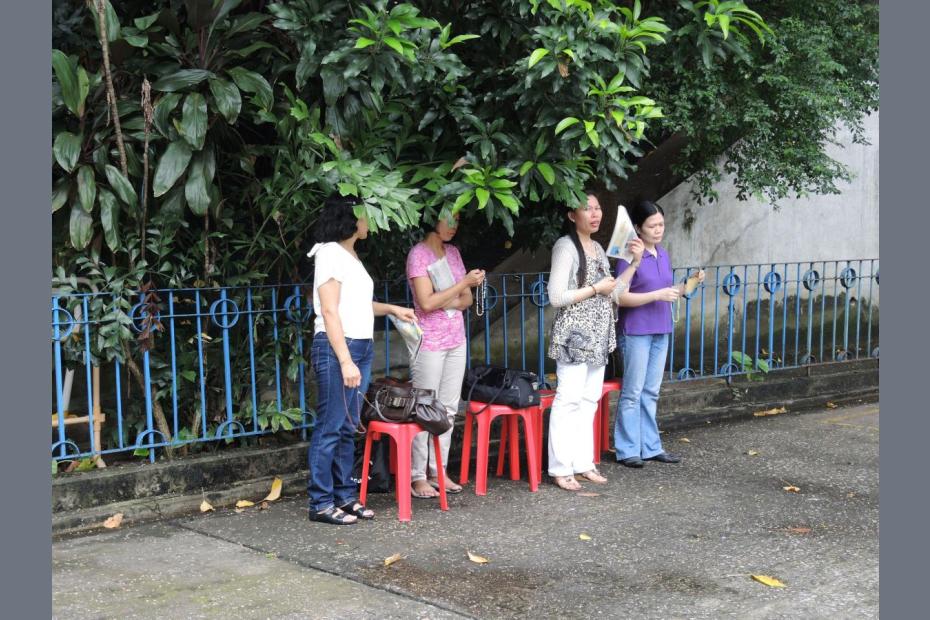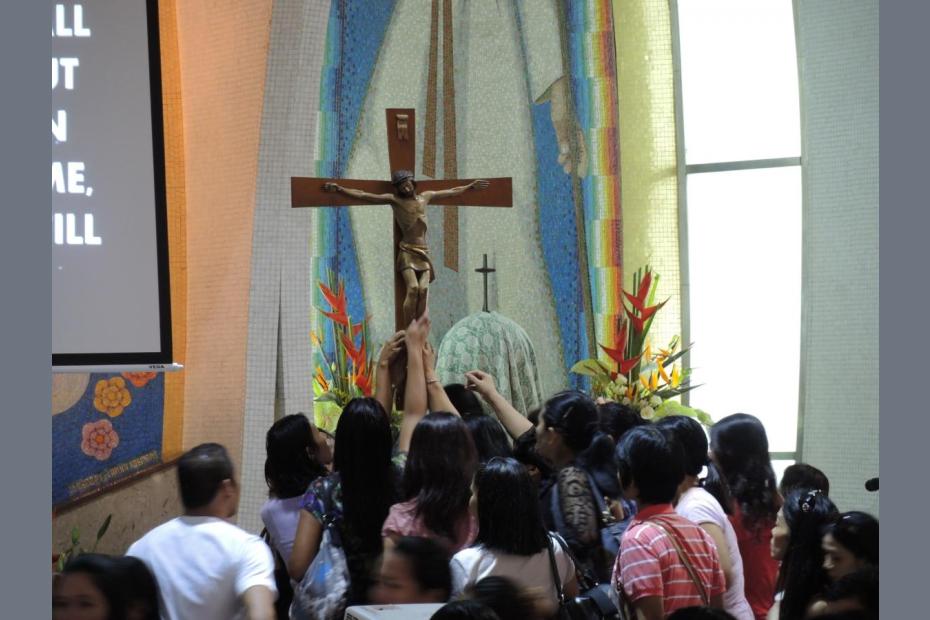Hong Kong is one of the most densely populated places in the world, and space is at a premium. Filipina househelp do not "own" physical space in any real way. Whereas they might have space for processions or public devotions at home, there is much less room for this in Hong Kong. While the diocese works hard to welcome them, Filipinas are always, by government design, guests in Hong Kong, temporary residents who will have to return home.1
For many Filipinas in Hong Kong, the lack of personal space makes it hard to practice religion in their homes, whereas this was very important to them in the Philippines. Their homes in the Philippines might often have had small altars with a few statues and holy cards, and were gathering places for families, often under grandparents’ leadership. Such religious images seem to be especially important for many, though not all, Filipinas. In interviews, many talked about their role in prayer and how a picture helped them to see Jesus or Mary when they prayed.
In Hong Kong, however, many of the Filipinas indicated that they had no space of their own where they might set up an altar. Despite laws requiring otherwise, some lack their own rooms and instead share space in the children’s room. Others live in crowded dormitory-boarding houses where the lack of privacy made it difficult to pray, so that prayer was something that happened most for them when others were asleep or away, something that could be done only at furtive moments.
In the Philippines, where more than 80% of the population is Catholic, devotional practice often moves out into the public square. In Hong Kong, however, public, large-scale religion is quite limited by the geography and by the need for permits. In light of all of this, the geography of Catholic practice seems to be concentrated more heavily in parish church settings and in the privacy of one’s own mind. Church can become a second home because it gives the Filipinas a place to be for some part of their day off, among friends rather than camping out on a shaded square of a public plaza.
- 1 Keith Bradsher, "Asia Pacific: Hong Kong Court Denies Residency to Domestics," The New York Times, March 26, 2013, http://www.nytimes.com/2013/03/26/world/asia/hong-kong-court-denies-foreign-domestic-helpers-right-to-permanent-residency.html.



